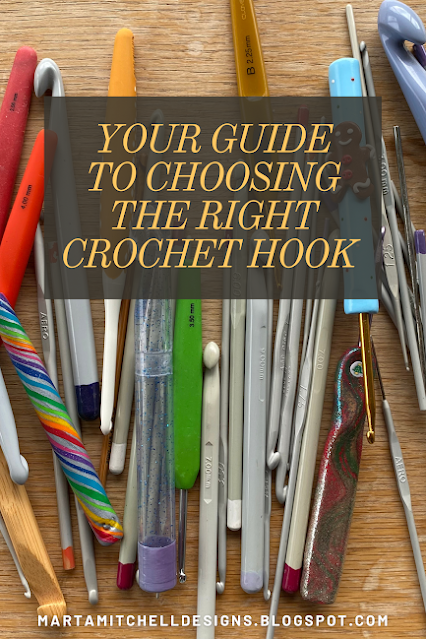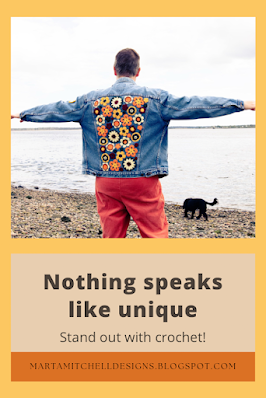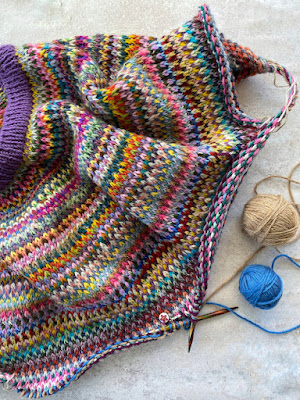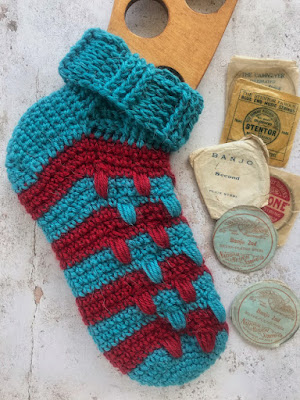Hello! With so many crochet hooks out there to choose from, maybe you're confused on which type to go for? Maybe you've tried a few different types and would like to explore further options? Here's my guide to choosing the right crochet hook ...
In this blog post, I'm listing the variety of materials that hooks can be made from and giving you a little info on each one. I also turned this post into a YouTube video if you're more of a visual learner you might want to check that out here.
1) Steel: these are generally super fine hooks (0.5mm - 2mm) which are ideal for working with thread and very thin yarn
2) Aluminium: are a good all rounder! They are cheap to buy and smooth to use. They come in a large range of sizes and are easy to find in charity shops.
3) Bamboo: an excellent choice if you prefer natural materials. Bamboo hooks come in a wide range of sizes, all except the really fine and the super chunky. Personally I have found that these hooks can catch on yarn, especially the finer ones (up to 4mm), but I do enjoy the feel of working with them.
4) Plastic: nice and light to work with. The smaller hooks are solid plastic, larger sizes are hollow plastic. Like aluminium hooks they are cheap to buy. You may want to avoid these if you're considering the environmental impact (unless second hand of course!).
5) Ergonomic: this is where your options explode open! There's a huge range of ergonomic hooks on the market, starting from very cheaply produced ones to luxury ones which feel so good to hold. The handles are formed of soft pastic moulded around an aluminium hook.
6) Hand crafted: these hooks are lovely if you're looking for something a little bit different. A polymer clay is added around an aluminium hook to create a chunkier handle. These hooks range from plain colours to quirky & fun!
7) Hand carved: if you're looking for something special, this is your option! These hooks are lovingly and expertly hand carved from wood. They usually have a bees wax finish to keep them supple and smooth.
8) Resin: Another luxury hook! A quick scroll through Etsy brought up so many pretty options, many of which are combined with wood. These tend to have a chunky ergonomic handle.
9) Interchangeable: A slightly different option; these hooks come with one ergonomic handle and a range of hook sizes to click or screw in place. I haven't tried them, but they are popular.
10) Light up: Similar to interchangeable hooks but with a light up tip. The hook itself is made of clear plastic with a light in the end, these click or screw onto a USB rechargeable handle.
Phew! Did you realise there were this many options?
Which type do I prefer?
Do you know, I tend to default to my trusty aluminium hook for most projects; it's probably because they're what I started crocheting with and they feel familiar to me.
I do also use a range of ergonomic hooks, particularly if I'm doing finer work. For super chunky and T-shirt yarn I like to use a hollow plastic hook because it's lighter. Basically, I mix things up!
A beautiful handcarved or resin hook is definitely on my WISH LIST! (I wonder if the hubby will read this?)
I've deliberately not linked to any hooks here. If there are any types you'd like to look up they're only a quick search away.
As well as different materials for hooks, there's also a difference in the design of the hook head and neck. However, I feel this needs a diagram to explain the technicalities and is probably a whole other blogpost for another day!
Until next time, happy crocheting,
Marta xx
PS. If you'd like to receive practical crochet info like this straight to your inbox, sign up to my mailing list here. There's a free pdf for you when you do - 25 Top Tips Every Crocheter Needs To Know!














